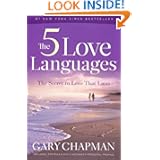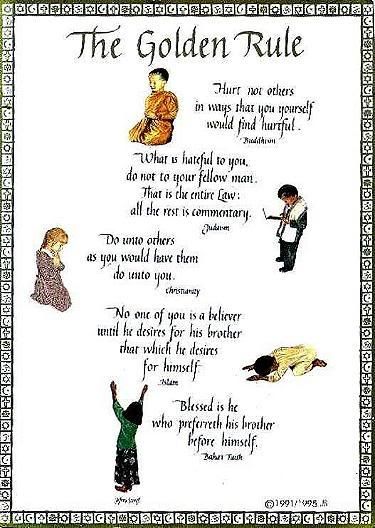Posts Tagged ‘hope’
 “Destroying False Evidence!” – Doc Meek
“Destroying False Evidence!” – Doc Meek
Image from: 123rf.com
“Destroying False Evidence!” – Doc Meek
Children in school very early on make the culturally-induced mistake of thinking that their school marks and their report card marks are a measure of their intelligence.
This false perception proves to be a minor error for some children and a major life-crippling error for others. What?
Report cards can be life-crippling instruments?
Yes, because the children (and society at large) believe–falsely–that the report card is an accurate measure of the child’s intelligence. Or at least an accurate measure of the child’s effort. Or both.
Thus a poor report card reflects on the child in two negative ways. It is thought that the report card marks prove that the child is either smart or not smart, or is making a good effort or is not making a good effort.
Locked in like a death grip
How can a good report card mislead a child?
The stories of well-educated and smart people–on the basis of their school marks–who fail in the workplace and/or in life are legion.
Some children brought to see me at THE LEARNING CLINIC are so locked into the false evidence of the report card that these children—on the basis of their report cards from school—believe they are both stupid and lazy.
I am certain the school does not intend to teach children that they are stupid and/or lazy.
What is to be done?
Sometimes drastic measures are necessary to demonstrate dramatically to the child that there is a solid disconnect between a school report card and their own intelligence and effort.
One child brought to me (let’s call him Harold, not his real name) had spent the first 4 or 5 years in elementary school and still had not learned to read.
Harold’s report cards were abysmal. And Harold felt dismal.
Both stupid and lazy?
Harold felt—and knew it was true—he was both stupid and lazy.
Harold’s father—a very frustrated and very angry parent—thankfully was convinced that everybody was missing something important. He just didn’t know what it was.
Harold’s father said he had positive out-of-school evidence that Harold was very smart.
Harold could not see it. He was adamant that he was stupid and lazy. His report cards proved it. All D’s and F’s for years.
The father was equally adamant that there was a solution. He insisted that I find a way to “get to the bottom of this mess!”
Soaring and crashing
So the father found a reading buddy for Harold and I taught them both how to use specific strategies to overcome the worst aspects of Harold’s inability to read—his dyslexia as some would call it.
Dyslexia is just a label—a label for observed reading difficulties. There are as many different kinds of dyslexia as there are children.
Both Harold and Tom (not his real name) practiced a specific strategy faithfully together for 15 minutes every day and reported back to me on Saturdays. They would then continue that same strategy for another week, or learn a new strategy.
These strategies were of all kinds: intellectual, visual, auditory, emotional, kinesthetic, beliefs, etc. We used the whole body and the whole mind. All happy and hopeful strategies. (For detailed specifics, see The Gift of Dyslexia, by Ronald Davis.)
Harold loved it. He was succeeding for the first time at mental tasks.
All went reasonably well and Harold’s marks at school soared. Finally Harold’s work at school was going so well that the reading pair stopped reporting to me weekly.
This is usually a good sign.
Crashed and crushed
Then one day Harold and his father arrived at my office like a great wind.
Father was in high dudgeon and Harold was so hang-dog I was very concerned for him. He looked even more defeated than when I saw him the first time in my office.
“What’s the matter?” I ventured.
Dad shoved a report card into my hands. Harold had just brought it home from school the day before.
I glanced at it. Mostly D’s and F’s. I quickly set the report card aside.
Dad explained that he had gone to the school to complain. The school explained that it was a mathematical averaging thing. They explained that Harold’s recent good marks were mathematically overwhelmed by the multitude of bad marks previously. It was school policy to average marks over time.
You would think that someone might have had the courage (or simply the common sense) to ignore the bad past and put the present good into place on a suffering kid’s report card. It is, after all, just a piece of paper, right?
Sometimes it is imperative to ignore “standard policy” or “standard practice” and remember the first purpose of education is to serve the child, not worship some mathematical algorithm.
Drastic measures needed
I tried reasoning with Harold:
“But look, you and Tom practiced those reading strategies faithfully every day and you know you learned to read quite well. You know you were reading quite well! Your Dad knows it. Your teacher knows it. And I know it and you know it. Right?”
Harold was unmoved. Locked in total despair. The report card proved he was right–he was stupid and lazy, just like always.
I grabbed the report card, shook it in front of Harold’s face, and roared, “Who cares what they think! You know better!”
I stood up, tore the report card to pieces, and hurled the pieces into the far corner of the office.
Dad was startled (to say the least).
Harold was impressed!
The evidence was destroyed right in front of him
Report cards had been the bane of his existence ever since he had started school.
An instrument of torture, defeat and proof of stupidity.
All that evidence—gone to wrack and ruin in the far corner of my office.
The vital necessity of keeping hope alive (at all costs)
So Harold sent back to school with high hope in his heart, and with his confidence in the truth of report cards decimated forever.
Wouldn’t you know it? Harold continued to thrive in school. 😮
Doc Meek, Learning Specialist
Sherwood Park, Alberta, CANADA, Fri, May 30, 2014
.EPILOGUE: A couple of days later, Dad arrived in my office alone, looking a little sheepish. “I need to sign that report card and take it back to the school,” he said. I was hoping he would aid and abet the demise of the report card, but he just couldn’t do it.
Fortunately the caretaker had not made his usual rounds to clean up my office.
So there we were in my office, a couple of guys gathering up pieces of report card, and scotch taping them back together like some weird puzzle. 😮
 Lady Aquamarine Hides Secret Shame – Doc Meek
Lady Aquamarine Hides Secret Shame – Doc Meek

Image from: Photobucket.com
LADY AQUAMARINE HIDES SECRET SHAME
By Dr. J. Collins (“Doc”) Meek
Once upon a time an undersea lady of noble blood pined to become a mortal. Finally, miraculously, her wish was granted. She became mortal and soon joined a women’s precision swim team.
No longer burdened with royal demands and expectations, Lady Aquamarine (now simply known as Andrea) entered upon her human adventure with great gusto. Her undersea swimming talents made for high success on the women’s precision swim team.
Still, mortality was a real challenge in many ways. This created moments in her life that were difficult and joyful, both.
She and her team rose to the top of their rank and were known and lauded far and wide.
Painful Secret
But alas, the Aquamarine Lady had a painful secret. Very painful. Although she was lauded and loved by everyone, she covered her heart in shame within herself. She spoke to no one of her carefully guarded secret…
Life went on.
Image from: Photobucket.com
One day, she was talking with her mother (Lady Amelia of the North Sea) and told her that though she was highly successful as a precision swimmer (of course!), she was failing as a mortal because she could not read. Her mother reminded her that a return to her former undersea life was not possible.
“I Am So Ashamed”
“Why don’t you seek some way to learn to read?” her mother asked innocently. “Impossible!” exclaimed Andrea, thoroughly discouraged. “I’ve tried everything and nothing works. I’ll never be able to learn to read. I am so ashamed!”
“Better seek out the Old Man of the Sea,” her mother intoned and dove back into her accustomed watery domain.
The Old Man of the Sea was elusive.
Hope at Last
So Andrea asked her mortal friend Andilusia, “What can I possibly do?” Andilusia said, “I’ve heard there is a doctor who helps hopeless cases. The mothers love him because he gives them hope for their troubled children.
Andrea sought far and wide for this hopeful doctor. When she finally found him, she pleaded with him to help her learn to read. He asked her, “What is the one thing on earth you love most?”
Andrea immediately related her adventures as a precision team member. “I love the work and I love the team and I love the challenges.”
Then, for seemingly no reason, she blurted out, “But what I love the most is swimming in the aquamarine waters of the South Pacific islands!” She didn’t tell him this was in her former undersea life of course. She was afraid he would not believe her aquatic story.
The good doctor simply said. “Was it the warm waters that you loved?”
Aquamarine Hues Can Speak!
“Yes,” mused Andrea, “And mostly the incredible aquamarine hues!”
“You have no idea of the magnificence of the aquamarine hues,” she said, almost weeping.
“Well, it is obvious then,” said the good doctor, “we need to have those inspiring aquamarine hues teach you now to learn to read.”
“What!?” exclaimed Andrea, not willing to believe the good doctor knew that lovely-hued waters could talk with her as in her former undersea life.
Colored Overlays a Big Surprise
“Here,” said the good doctor, “Look at these gel colored overlays that are used to cover spotlights in the world of dramatic productions, presentations and plays.”
“Oh,” blurted Andrea, “Sometimes they put spotlights on us when our precision swim team is performing, especially in the evenings.”
Andrea immediately sought out one of the technicians who operated the spotlights for the team. He showed her an array of gel colored overlays, and she quickly picked several that were an exact match with the aquamarine waters of her South Seas experiences.
Andrea placed one of the aquamarine gels over the first page in a book she longed to read.
The “Small Black Marks” on the Printed Page Now Made Sense!
And she could not believe her eyes! The normal blur of quaint black marks on the page now shimmered gently in a quiet sea. She noticed that some of the quaint black marks (now softened by one of the aquamarine colored overlays) seemed to speak to her softly, seemed to make more sense to her now.
“My love of precision swimming now gives me a love of reading that I never ever thought I could achieve!” she rejoiced.
She wept for joy.
Defeats Dyslexia
With time, she learned individual words and phrases and loved to make sense of the whole sentence, then the whole paragraph and then the whole story.
And so, thanks to the colored overlays she was now using every day, she went merrily on her way! She got on with her life with great precision and great happiness.
Once thoroughly defeated, Lady Aquamarine now thoroughly defeats dyslexia.
……………………………
J Collins Meek, Ph.D., shows children and adults how to defeat dyslexia, ADHD, and many different kinds of learning problems. He is in private practice in Edmonton, Alberta, CANADA. He is an expert at creating innovative protocols to help children and adults triumph over learning difficulties.
 Can Moms teach kids how to run their own brains? – Doc Meek
Can Moms teach kids how to run their own brains? – Doc Meek
Friday, October 19, 2012, at Sherwood Park, Alberta, CANADA
“Today I am grateful for the Moms who asked me to share again some secrets about kids learning to run their own brains, to engage active learning skills. I first published these secrets in a series of 7 articles back in 2010 and I am re-posting them here now.” – Doc Meek
“Today I am grateful for mothers and grandmothers!” – Doc Meek
Cheerful Grandmother with cheerful child
This is the seventh (7th) article in a series of seven (7) articles designed to help us run our own brain, and to help our children and students do the same, more easily and have more fun doing it. If you missed the Introduction or any of the previous six (6) articles, just click on the titles below:
(Intro) Learning to run our brain: 10 minutes daily
(1) Learning to run our own brain: Fear of failure
(2) Learning to run our brain: Vital need for HOPE . . . always
(3) Learning to run our brain: What are qualifications for the daily “brain coach?”
(4a) Learning to run our brain: Simple easy examples of how to proceed
(4b) Learning to run our brain: Remembering names
(5) Learning to run our brain: The eyes don’t see–the brain sees
(6) Learning to run our brain: Tasks of the “back 90″
………………………………………………………………………………………..
Separate the Mother role from the Teacher role
When I worked with families in helping children to overcome learning difficulties, often there would be a battle going on at home which one mother described as “the homework wars.”
I would ask what was being taught. The mother would give me the school subjects being “taught.” I would then say:
Those subjects are not actually what is being taught. What is being taught is to hate learning and maybe even to hate your role in that. Is that what you want?
An emphatic “No” from the mother.
Then maybe we should take a larger perspective here.
School is not life.
Life is life.
And school–though important–is only part of life.
As Dr. Levine often says, “These kids are in general OK. We just need to get them safely into adulthood.” ![]()
When school was taking the child’s whole day–all of it unpleasant or painful–I felt that a better balance should come into play.
The child would go to school all day and then do homework all evening until bedtime. Not good.
No more homework until further notice!
I would ask the mothers to stop trying to be the school teacher, since the child had had enough of school teachers at school, without finding one at home every day until bedtime.
I asked the mothers to do what mothers generally do singularly well: just love them! Learn to have fun with them. So at least a part of the child’s day is pleasant and enjoyable and, in particular, human and humane. ![]()
Sometimes I would write an official letter to the school, requesting: “No more homework until further notice.”
Then the mother and the child could get on with life, while I and an external-to-the-home “brain coach” could help the child overcome his or her learning difficulties.
Grandmothers are great too
Sometimes the mothers were too busy to simply enjoy recreational time with the child and so we would bring grandma into play. If the child had no grandma near, we would borrow one from the neighborhood or even from a nearby “old folks home.”
The Grandmas loved it!
Here’s to Moms and Grandmas!
Doc Meek, Thurs, Oct 19, 2012, at Sherwood Park, Alberta, CANADA
–
“What if you are smarter than you think?”

THE LEARNING CLINIC WORLDWIDE, INC.
CANADA: Dr. Meek (587) 400-4707, Edmonton, AB
TONGA: Mele Taumoepeau, P.O. Box 81, Nuku’alofa
USA: Dr. Meek (801) 738-3763, South Jordan, Utah
For optimum brain health, ensure your heart health:
More on heart health: http://www.themeekteam.info
USA: Jeannette (801) 971-1812; South Jordan, Utah
CANADA: Jeannette (587) 333-6923, Calgary, Alberta
CANADA: P.O. Box 3105, Sherwood Park, AB T8H 2T1
=========================================
 New Granddaughter! – Doc Meek
New Granddaughter! – Doc Meek
Thursday, November 3, 2011. Today I am grateful for newborns, the world over. They remind us of innocence, new beginnings and new hope!
In many ways babies (and children) teach us more than we teach them, eh? 😮 ~ Doc Meek
Glad parents of new baby Serena
………………………………………………….
Dear Mom and Dad of Serena,
 “The world breaks . . . ” ~ Ernest Hemingway
“The world breaks . . . ” ~ Ernest Hemingway
Tuesday, July 12, 2011. Today I am grateful for the knowledge that obstacles and crushing defeats can be a means of greater strength and character. It’s just that I can’t feel that in my heart right now. 😮 Maybe later, eh? ~ Doc Meek

VIDEO: Water breaking on rocks, from YouTube: http://youtu.be/LhZUiIg3uJc
“The world breaks everyone
and afterward
many are stronger in the broken places.”
– Ernest Hemingway (1899-1961); novelist, Nobel Prize winner
Quote from: http://www.values.com
Thank you Ernest Hemingway for your universal insight for all of us!
Doc Meek, Tues, July 12, 2011, Sherwood Park, Alberta, CANADA
 “A gondola and a taste of Italy.” ~ Doc Meek
“A gondola and a taste of Italy.” ~ Doc Meek
Wednesday, July 6, 2011. Today I am happy and grateful that I was able to spend my 17th Wedding Anniversary with my beloved spouse Jeannette. ~ Doc Meek
A gondola and a gondolier
Image from: http://en.wikipedia.org/wiki/Venice
I didn’t have the money to take my spouse Jeannette to Italy for our 17 Wedding Anniversary, so I rented the Venice Room in the Anniversary Inn in Salt Lake City, Utah, USA.
We slept in a gondola in the Venice Room at the Anniversary Inn, and that gave us a nice taste of northern Italy. The gondola was anchored to the floor so we didn’t get seasick! 😮
Image from: http://www.anniversaryinn.com/fifth-south/room/7-venice
Doc Meek, Wed, July 6, 2011, Sherwood Park, Alberta, CANADA
 “Learning we are loved, even when we don’t feel it.” ~ Doc Meek
“Learning we are loved, even when we don’t feel it.” ~ Doc Meek

| Today’s Value: caring |
 “Changing from Empty to Emotionally Rewarding Relationships.” ~ Doc Meek
“Changing from Empty to Emotionally Rewarding Relationships.” ~ Doc Meek
Thursday, June 23, 2011. Today I am grateful for those who have defied personal hopelessness, and learned how to bring dead relationships alive again, and enjoy life. ~ Doc Meek
Image above and text below from: http://www.amazon.com/Love-Languages-Secret-That-Lasts/dp/0802473156/ref=sr_1_1?s=books&ie=UTF8&qid=1308878470&sr=1-1
The 5 Love Languages: The Secret to
Love That Lasts
Gary Chapman (Author)
One Customer Review:
Where’s The Needle On *Your* Love Tank?
How’s your relationship with your mate? Your children? Your parents? Your siblings? It may be a matter of the state of the “love tank”.
Author Gary Chapman in his book The Five Love Languages: How to Express Heartfelt Commitment to Your Mate believes everyone has a love tank, and that tank is filled by different love languages. These five languages are Gifts,…
Doc Meek, Thurs, June 23, 2011, Sherwood Park, Alberta, CANADA
 “Girls think boys . . . ” ~ Reader’s Digest
“Girls think boys . . . ” ~ Reader’s Digest
Tuesday, June 21, 2011. Today I am grateful for common sense. ~ Doc Meek
Image from:
http://www.greatnotions.com/pr/embroidery/Machine+Embroidery+Designs/1/14870.aspx
It must have been 60 years ago (at least) that I read in the Reader’s Digest one of those famous one-liners that I love so dearly:
“Girls think boys are rude and uncouth when they stare at what they are trying so hard to display.”
The other day I read an article in the daily newspaper wherein a woman was decrying a policeman’s warning women that it was in their best interests not to dress like “sluts” because it gives the wrong kind of message to men.
Since this was after a rape horror story, the woman was upset that the policeman seemed to be blaming the victim for her rape, that the policeman should have been blaming the rapist.
Never Blame the Victim
Of course we should never blame the victim of any kind of crime. Never.
Something is missing here however in the public dialogue on serious criminal matters.
If women go into dark alleys at night alone, if they hitchhike, if they wear really provocative clothing, they will generally, sooner or later, come to unwanted grief of some kind, minor or serious. Or really serious.
Of course women have the right to go anywhere they want, behave any way they wish, and wear anything they please.
And be safe.
However, they do need to use their common sense. They need to notice that we are living in a society where it is unsafe (generally speaking) for women to advertise their defenselessness or their sexual assets.
Women Should Rebel
Women should rebel. Yes, they should rebel against a fashion industry that puts incredible pressure on women to display themselves purely as sexual beings, instead of displaying themselves as good personalities or intelligent beings.
We are all sexual beings. To display this as a front-runner is simply unwise if sexual safety is desired.
This does not, in any way, excuse rape or rapists! Nor does it excuse any kind of sexual predators or “unwanted-remarks” from men!
It is just common sense to dress modestly and display your intelligence instead!
Doc Meek, Tues, June 21, 2011, Sherwood Park, Alberta, CANADA
 “Learn When to Reverse The Golden Rule.” ~ Doc Meek
“Learn When to Reverse The Golden Rule.” ~ Doc Meek
Saturday, June 18, 2011. Today I am grateful for people who are able to treat others as they themselves would like to be treated. ~ Doc Meek
“The Golden Rule” in 5 different philosophies/religions
Image from: http://photobucket.com/images/%22golden%20rule%22/#!cpZZ2QQtppZZ24
As a general rule, The Golden Rule is a great yardstick for our behavior and our mental/emotional health.
However, in the specific case of a specific individual, we need to remember that our particular “language” of receiving what we want may not be the same “language” that the other person recognizes.
Here is a simple example:
I, Doc Meek, love books and reading. Applying The Golden Rule as a general rule, I would want to make sure that others had access to books and reading. I might even buy a book and give it to someone.
Here’s the catch.
And here’s why we need to learn when to reverse The Golden Rule.
What if the other person hates books and reading? And loves action-oriented things, with which I am miserably unacquainted.
I probably wouldn’t even think of action-oriented things! 😮
So in this case, I would have to try to see the world through the other person’s eyes, to try to treat him/her as they would want to be treated, not how I would want to be treated.
Reversing The Golden Rule
Reversing The Golden Rule (by saying, “Do unto others what they like, not what I like,” or something like that. :o), I would give the other person a pair of skates or a hockey stick, say, or a basketball, or a baseball, or a kite.
Or a tree to climb. 😮
I would give the other person whatever action-oriented item that I knew (or could find out from his/her friend) would “warm the cockles of their heart.” I would definitely not give them “some dumb book!” 😮
Lesson learned?
Doc Meek, Sat, June 18, 2011, Sherwood Park, Alberta, CANADA
P.S. Here is a reminder that “The Golden Rule” is present in more religions/philosophies than just the 5 shown above:
“The Golden Rule” in 13 different philosophies/religions
Image from: http://photobucket.com/images/%22golden%20rule%22/#!cpZZ2QQtppZZ24








